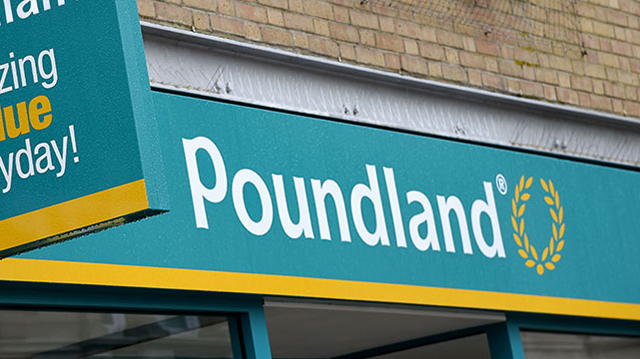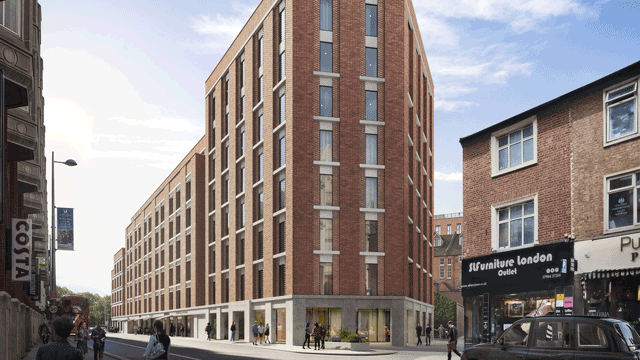Austria’s fourth-largest listed property company has boosted its presence in the resurgent German market with its recent purchase of Vivico, and its spun-off CEE operation has launched two acquisitive vehicles
When Vienna-listed CA Immo paid €1.03bn for German state-owned Vivico Real Estate in December last year, it graduated into the upper echelons of German and European property companies. The acquisition boosted its asset value by 42% to some €3.4bn, and in the same month analysts at Dutch merchant bank Kempen & Co took CA Immo, which is Austria’s fourth-largest listed real estate company, into its Global Property Research 250 index.
The purchase gave CA Immo significant exposure to the resurgent German property market, combined with its December 2006 maiden German acquisition of assets from the state of Hessen in a €770m sale-and-leaseback deal. Vivico’s 1.9m m2 portfolio of income-producing assets (see box opposite) and development projects are located in prime locations within Berlin, Frankfurt, Munich and Cologne.
CA Immo said this month that the Vivico and Hessen portfolios would be combined under the Vivico brand. Parts of Vivico would eventually be turned into a G-REIT, but probably not this year because of the weakness of the stock markets. Since the Vivico acquisition last December, CA Immo’s share price has fallen by around 20% from €15 to €12 per share. This compares with a drop in the EPRA index over the same period of around 7%.
The share fall probably reflects some development risk in Vivico, the portfolio of which comprises 32% income-producing assets, 63% development projects and 5% planned projects. Vivico’s developments include Lehrter City Quarter in Berlin, a new location for 144,000m2 of offices, plus retail and residential, close to the River Spree and the new main station of Lehrter Bahnhof. The company also has a Swiss project in partnership with the Netherlands’ Multi Development Corporation. The joint venture is building a new shopping centre and hotel in the Erlenmatt district of Basle. Construction will start in May 2009 with the Erlenmatt Galerie opening in autumn 2011.
This year, Vivico has earmarked around €350m for more property acquisitions in Germany, where the company so far plans to hire another 140 professionals. CA Immo says it is “specially focused” on Germany, which it thinks has the strongest development and growth potential of all the western European real estate markets.
The company wants to invest €5bn in Germany through Vivico. By the end of this year, CA Immo expects to boost its property assets to €6.1bn, with a regional split of €1.8bn in Germany, €1.7bn in Austria and €2.6bn in eastern Europe, concentrating on Russia, Ukraine and Serbia.
CA Immo, which is run by chief executive officer Bruno Ettenauer, chief technology officer Gerhard Engelsberger, and chief finance officer Wolfhard Fromwald, was founded in 1987. It has total assets of around €3.5bn, comprising chiefly offices in Austria, Germany and eastern Europe. The company also develops property, typically in joint ventures with local firms.
After an IPO in 1988, the company specialised in Vienna offices and moved into the country’s regions. It was also the first Austrian listed property company to venture into eastern Europe with the 1999 purchase of a Budapest office building.
Two years later, CA Immo started developing in Budapest and Prague, then acquired office assets in Bulgaria and Romania. The year 2005 was especially busy for the company, which doubled the size of its eastern European portfolio.
Italian group UniCredit owns 10% of CA Immo. The remaining free float is held by a variety of mainly international institutional investors, plus some private shareholders. In 2006, CA Immo spun off its central and eastern European operations into CA Immo International (CA ImmoI), keeping a 51% stake. The 49% free float is owned 90% by international institutional investors, while 10% is in the hands of private investors.
Both parent and subsidiary are internally managed and have a number of local operations. CA Immo International also established two funds focusing on eastern Europe: an opportunity development vehicle called CA Immo New Europe Property Fund and the H1 Hotel Fund.
CA Immo will invest around €200m of equity in the CA Immo New Europe Property Fund and it has placed a further €200m among international institutional investors. The Luxembourg-run vehicle aims for a leverage of up to 75%, averaging around 60%, giving a buying power of €1bn for projects of between €40m and €70m.
Regionally, the fund is aiming for 20% of the projects to be in CEE, and 40% each in SEE and the CIS. The investment period will be three to four years.
CA ImmoI to manage New Europe fund
CA ImmoI will manage the vehicle, charging a development fee of 125bp on the project value, and an asset management fee of 85bp based on the market value of the property the company will also take 20% of the amount over an internal rate of return (IRR) of 15%, plus 30% of the amount over a 20% IRR.
The fund launched its first project in February last year in Belgrade, where it is building a €45m office tower that is planned to show a yield of 10-12%.
Another planned office, retail and hotel project is a 50/50 joint venture with developer UBM in Warsaw. CA ImmoI expects the €88m scheme to generate an 8-10% yield. Subsequent phases will bring the value of the project to €250m and provide 200,000m2. New Europe is 50% invested and CA ImmoI plans to have it fully invested after 18 months.
For the H1 hotel fund, the company has joined with Austrian insurer Raiffeisen Versicherung. It will develop three- and four-star business hotels in eastern European countries. It will have equity of €140m for a first development phase and after leverage it will have €500m at its disposal. H1 has agreed with Russian group Avtopromimport to develop 50 hotels across Russia, where most of the fund’s activity will take place.
Other Russian projects include a €400m business park called Airport City near St Petersburg airport. Late last year the New Europe fund acquired a one-third stake in the project from Austria’s Warimpex, which is developing the two-phase complex with Avielen OAO and St Petersburg Airport.
When completed in 2011, the park will include around 100,000 m2 of offices and a 300-room Crowne Plaza hotel. According to Ettenauer, the development return will be about 10% on this project.
The group has a project in Moscow after it bought a 50% stake in a 30,000 m2 office development for €50m in November 2006. The site is near the Belorusski station in Moscow close to the intersection of Leningradsky Prospekt and the Third Ring Road. Completion is set for the first quarter of next year.
Ettenauer says: “Finished investment- grade products can be sold at 8% because investor interest is so high for the city.”
Last September, CB Richard Ellis completed the quarterly revaluation of the group’s eastern European assets, resulting in an uplift of 2.3%. Measured against projected rental income this year of €121m, the gross yield on the existing portfolio is about 5.7%.
The group operates with a mixture of its own equity and debt. Ettenauer says: “We work with between 30% to 40% equity financing and the remainder is from traditional bank loans. The credit squeeze is not having much effect because we are asking mainly for senior loans.”
The group uses a variety of the major banks that are active in central and eastern Europe, including the region’s biggest lender and CA Immo shareholder UniCredit, and UniCredit affiliate Bank Austria Creditanstalt.
In Germany, Eurohypo provided finance for the purchase of theHessen portfolio while Bayerische Landesbank structured the funding for the Vivico deal.
For the future, Ettenauer is favouring office development in Germany as office demand picks up and is keen to expand the New Europe fund’s remit to Ukraine.










